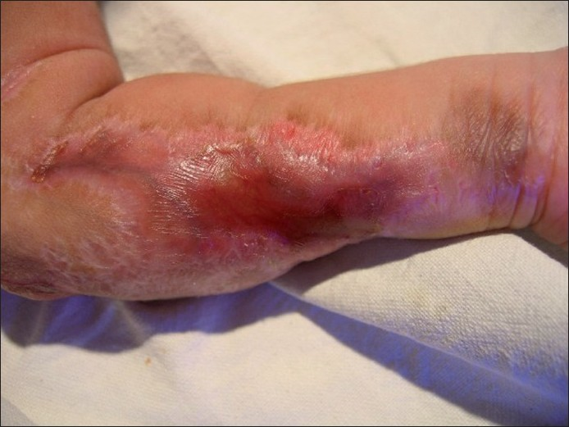Varicella Zoster Virus
Varicella zoster virus (VZV) causes varying illnesses depending on who it infects. It is spread through respiratory droplets and direct contact with vesicular fluid. Transmission can also be from mother to child in utero through the placenta. The virus incubates for 10-21 days, meaning the first symptoms may not show up until then. After the introduction of the varicella vaccine in 1995, the incidence of varicella dropped 98% from 1995 to 2010.
Chickenpox
Chickenpox typically occurs during childhood and is characterized by fever and possible sore throat followed by a rash. The rash is usually itchy and comprised of small red bumps which progress into vesicles (which are fluid-filled) and eventually crust over. In healthy children without other medical conditions, chickenpox resolves with supportive care within 2 weeks.
Congenital Varicella Syndrome
If mom catches varicella infection in during weeks 8 through 20, there is a risk that the fetus will develop congenital varicella syndrome. The virus enters the blood and crosses the placenta to reach the fetus. While the incidence of infection is low in the US (1-5 cases per 10,000 pregnancies), it is important to be aware of because of the severity of congenital infection. Babies with congenital varicella syndrome may have low birth weight due to intrauterine growth restriction, scarring of the skin, eye abnormalities, limb abnormalities, seizures, and intellectual disabilities.
If mom is exposed to varicella during pregnancy, she should be given varicella-zoster immune globulin (Varizig) to prevent infection. If there is evidence of active infection, she should be treated with oral acyclovir within 24 hours. The fetal blood or amniotic fluid can be tested for VZV DNA. An ultrasound will also be ordered to detect any fetal abnormalities.

Neonatal Varicella
If mom catches varicella 5 days before to 2 weeks after delivery, the baby is at risk for neonatal varicella. Neonatal varicella is more severe than that of older children because their immune systems are relatively immature. The newborn may get a fever in the first few days of life, followed by a vesicular rash as in chickenpox. They are prone to more severe infection that may lead to varicella pneumonia, hepatitis, and meningoencephalitis. These severe presentations should be treated with acyclovir for 10 days.
If mom has known varicella infection at delivery, it is important to administer varicella-zoster immune globulin (Varizig) to baby for prevention. The mother should continue to breastfeed because antibodies in the breast milk may be protective.





